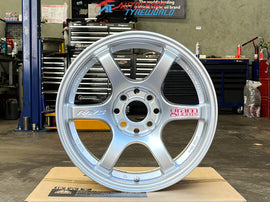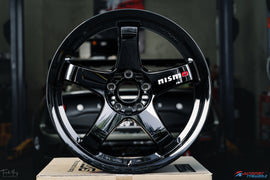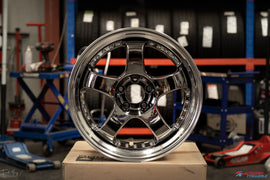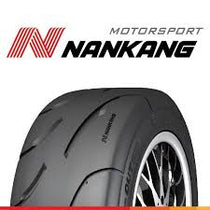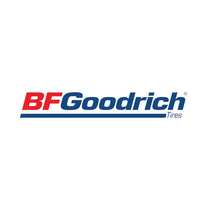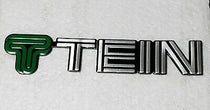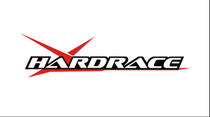When to Use Reinforced Tyres (XL and HL)
Understanding reinforced tyres, their purpose, and whether your vehicle really needs them.
You may have come across the term reinforced tyres and wondered what makes them different — or whether they’re right for your car. Despite what the name might suggest, reinforced tyres are not designed for off-road driving. Instead, they’re engineered to support heavier vehicle loads safely and efficiently.
Let’s take a closer look at what they are, how they work, and when to use them.
🔍 What Are Reinforced Tyres?
The term “reinforced” can be misleading. It doesn’t mean the tyre is tougher against sharp stones or punctures.
Instead, reinforced tyres are tyres with an increased load capacity — built to support a heavier vehicle mass while maintaining safe driving performance.
There are two main ways to handle a vehicle’s weight:
-
Increasing tyre size, which enlarges the air volume that supports the load.
-
Increasing air pressure, which is where reinforced tyres come in.
Reinforced tyres are designed according to the second principle: they can handle higher internal air pressure to support extra weight.
🧱 XL vs. SL: Understanding the Markings
On the tyre sidewall, you’ll find the marking that indicates whether a tyre is standard or reinforced.
| Marking | Meaning | Description |
|---|---|---|
| SL | Standard Load | For regular passenger vehicles |
| XL | Extra Load (formerly “Reinforced” or “REINF”) | For vehicles requiring higher load capacity |
The load index (a number printed beside the size on the tyre’s sidewall) will be higher for an XL tyre than for a standard SL tyre. This indicates that the XL tyre can carry more weight under the same conditions.
🚙 Which Vehicles Need Reinforced Tyres?
Reinforced (XL) tyres are typically designed for heavier vehicles, such as SUVs, crossovers, and certain MPVs.
Examples of vehicles fitted with XL tyres:
| Vehicle | Tyre Size | Type |
|---|---|---|
| BMW X2 M35i (4x4) | 225/45 R19 96H | XL |
| Mercedes 1.3L 109 (MPV) | 225/40 R19 93H | XL |
| Renault Koleos II 1.8 dCi 150 (4x4) | 225/55 R19 103V | XL |
| SEAT Tarraco 1.9 TSI 190 (4x4) | 235/45 R20 100V | XL |
| Volvo XC60 2.0 T6 320 (4x4) | 255/45 R20 105H | XL |
💡 Note: Commercial vans do not use XL tyres.
They require tyres specifically marked with the letter C, which stands for Commercial. You’ll find this “C” marking on the sidewall near the size notation.
⚖️ HL vs. XL: What’s the Difference?
The HL (Heavy Load) marking is a newer standard, introduced in 2021, to meet the needs of electric and hybrid vehicles — which are naturally heavier because of their batteries.
Why HL tyres were created
Electric and hybrid vehicles can weigh several hundred kilograms more than their combustion equivalents. To manage this extra mass without increasing tyre size, manufacturers developed the HL standard.
This allows tyres to carry greater loads at standard inflation pressures.
Example marking:
HL 225/45 R17 124V XL
In this case:
-
HL = Heavy Load
-
XL = Extra Load construction (for even greater pressure tolerance)
Although HL tyres were initially designed for EVs and hybrids, they are now also used on powerful combustion models like the Mercedes-AMG C-Class Sport, where higher load capacity is needed.
❓ Can You Fit Reinforced Tyres on Any Vehicle?
It depends on your vehicle’s specifications.
-
If your car requires XL or HL tyres, you must fit them. Using standard tyres (SL) would cause:
-
Excessive deformation under load,
-
Faster tread wear,
-
Reduced handling precision, and
-
Compromised safety.
-
-
If your car does not require reinforced tyres, fitting them offers no benefit and may have some drawbacks:
-
Heavier tyre weight,
-
Stiffer ride, reducing comfort,
-
Slightly higher rolling resistance, increasing fuel or energy consumption.
-
✅ Always check your vehicle manufacturer’s recommended tyre specifications, found in the owner’s manual, driver’s door sticker, or fuel cap.
⚙️ Summary: When to Use Reinforced Tyres
| Situation | Recommended Tyre Type |
|---|---|
| SUV or MPV | XL (Extra Load) |
| Electric or Hybrid Vehicle | HL (Heavy Load) |
| Light Commercial Van | C (Commercial) |
| Standard Passenger Car | SL (Standard Load) |
| Off-road driving | Not specific to XL – choose dedicated off-road tyres instead |
🌍 Reinforced Tyres: Strength Meets Safety
Reinforced tyres are not about off-road toughness — they’re about load capacity, safety, and stability for modern, heavier vehicles.
Whether you drive an SUV, hybrid, or electric model, using the correct load-rated tyres ensures:
-
Optimal handling and braking performance
-
Better tyre longevity
-
Greater comfort and safety on every journey
Michelin designs its XL and HL tyres to deliver superior load capacity without sacrificing ride comfort, efficiency, or environmental performance.

